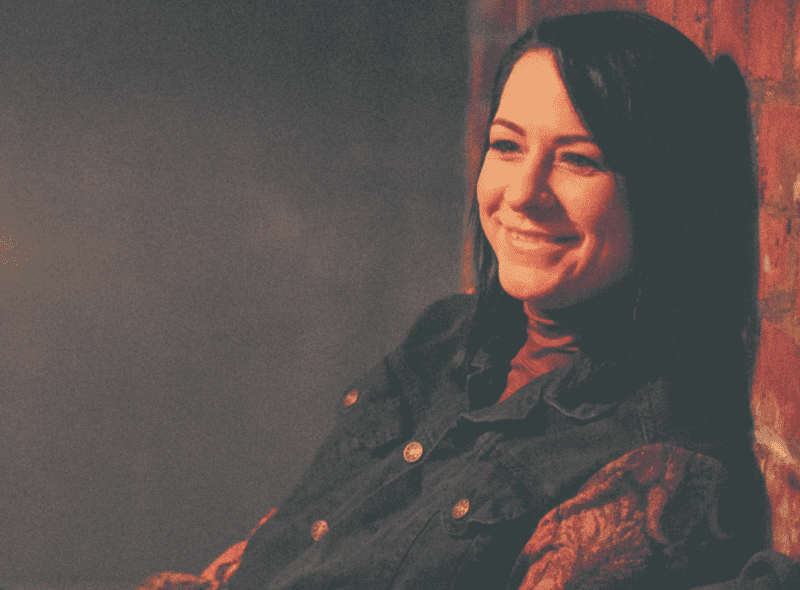British singer Lucy Spraggan returns to the U.S. with more fame, but the same priority: connecting intimately with her audience
British singer Lucy Spraggan returns to the U.S. with more fame, but the same priority: connecting intimately with her audience
At first listen, the lyrics to Lucy’s Spraggan’s latest single, “Modern-Day Frankenstein,” sound both specific and angry. You’re like a poltergeist, a ghost / With its hands wrapped round my throat she sings. That’s the makings of an old-fashioned breakup song.
But when we spoke over the phone with Spraggan — an English lesbian singer-songwriter with a large following in her home country trying to make her name in the U.S., including a tour that brings her to Dallas this week — she clarified that the intent was something much different.
“It’s actually about my relationship with my wife… Which sounds really bad!” she says. But Spraggan means it in the best way. It’s a song about the truth of long-term commitments, their hard parts and great parts, all about a personal interest she and her wife share. “The song is kind of like how you’re the best person and the worst person” she says. “Also we love Halloween in our house. I wanted it to be a gruesome family ballad.”
That’s one thing that sets Spraggan apart as a recording artist: She comes at a genre often weighed down by obvious choices — sad breakups songs, strummy acoustic guitar chords — and plays with it in a completely new way. Her lyrics are smart, often playful, sometimes intense and always a twist on what you’d expect. On her latest album, I Hope You Don’t Mind Me Writing, she alternates slower, low-key songs with poppy, snappy ones. These latter tracks are the most fascinating, a complicated mix of happy tunes and dark imagery that, in turn, Spraggan uses to describe rather happy circumstances.
 Take “Loaded Gun,” an upbeat bit of folk-pop that describes a pair of young friends as, well, loaded guns. We can eat sundaes because it is Sunday / And waste our change in the arcade / We can get tattoos and maybe some seafood / And then you might be feeling ok. Sounds like a fun day, until you remember the track opens with the sound of a gun being cocked.
Take “Loaded Gun,” an upbeat bit of folk-pop that describes a pair of young friends as, well, loaded guns. We can eat sundaes because it is Sunday / And waste our change in the arcade / We can get tattoos and maybe some seafood / And then you might be feeling ok. Sounds like a fun day, until you remember the track opens with the sound of a gun being cocked.
Making music this way requires the kind of openness and penchant for risk-taking that makes a mark in a crowded pop field. Spraggan has that in spades. Take her habit of hanging out after shows for a pint or two with her fans.
“I’m going to be saying to people at the show, ‘does anyone fancy a beer after we’re done? I’d love to chat with you then and know who you are,’” she says.
It’s that type of connection that becomes a recurring theme in our conversation. Spraggan seems to thrive on it. Her only other tour of the U.S. occurred 12 years ago, when she was 18. Even then, she fostered relationships with strangers. She had come from the U.K. with little more than her guitar and a lot of gumption, tackling concerts in 32 states in just three months. More often than not, she’d walk into a cafe and simply ask to play, sometimes in exchange for food and the use of a booth as a bed for the night. “I spent quite a bit of time in Rehoboth Beach in Delaware, just going up and down the street like that,” she says. “At South By Southwest, I met friends for life, just people I bumped into on the street.”
In the U.K., Spraggan plays large venues and music festivals, and she’s well-known for her stint on the Irish version of reality TV competition franchise The X-Factor; her fame in her homeland makes such bard-ish wanderings difficult, if not impossible. It’s just a different vibe. So her goal for flying under the radar on this tour is to recapture her beginnings.
“Normally, I’m freaking out about whether we are gonna get past X-thousand people at the show,” she says. “But if there’s like 20 people in the room, I’ll be like, ‘This is unbelievable — I’m in Dallas and 20 people came. It’s amazing that you took the time to travel, took the time to find tickets.’ It really does make me feel like meeting people.”
Throughout our phone chat, Spraggan’s sense of wonder and appreciation grows more and more clear. She’s that rare artist who is circling back to her origins, and finding something new there while bubbling over with an appreciation for it all.
“In my mind, this is like going back to that first tour — just getting on a plane, getting on a bus, and just going. It’s that proper sense of freedom,” she says. Still, she notes with a laugh, “I guess it is different in that I’ve got an AirBnB for every night.”
— Jonanna Widner












